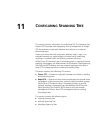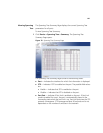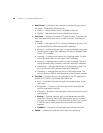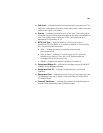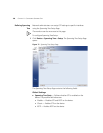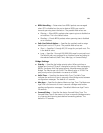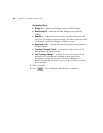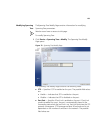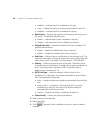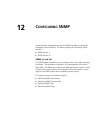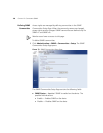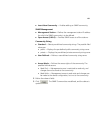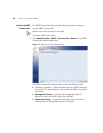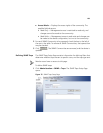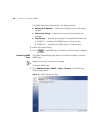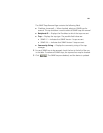
154 CHAPTER 11: CONFIGURING SPANNING TREE
■ Enabled — Indicates fast link is enabled on the port.
■ Auto — Enables the device to automatically establish a fast link.
■ Disabled — Indicates fast link is disabled on the port.
■ Root Guard — Restricts the interface from acting as the root port of
the switch. The possible field values are:
■ Enable — Indicates Root Guard is enabled on the port
■ Disable — Indicates Root Guard is disabled on the port.
■ Default Path Cost — Specifies if Default Path Cost is enabled. The
possible field values are:
■ Enable — Enables the default path cost on the port.
■ Disable — Disables the default path cost on the port.
■ Path Cost — Defines the port contribution to the root path cost. The
path cost is adjusted to a higher or lower value, and is used to forward
traffic when a path is re-routed. The field range is 1-200,000,000
.
■ Priority — Defines the priority value of the port. The priority value
influences the port choice when a bridge has two ports connected in a
loop. The priority value is between 0-240. The priority value is
determined in increments of 16.
■ RSTP Link Type — Specifies whether a Point-to-Point link is
established, or if the device is permitted to establish a Point-to-Point
link. The possible field values are:
■ Auto — Enables the device to establish automatically Point-to-Point
link.
■ Point to Point — Indicates if a Point-to-Point link is currently
established on the port. Ports set to Full Duplex modes are
considered Point-to-Point port links.
■ Shared — Enables the device to establish a shared link.
■ Select Port(s) — Selects the ports to be defined.
2 Select the ports to be defined
3 Define the fields.
4 Click . Spanning Tree is modified on the port, and the device is
updated.



